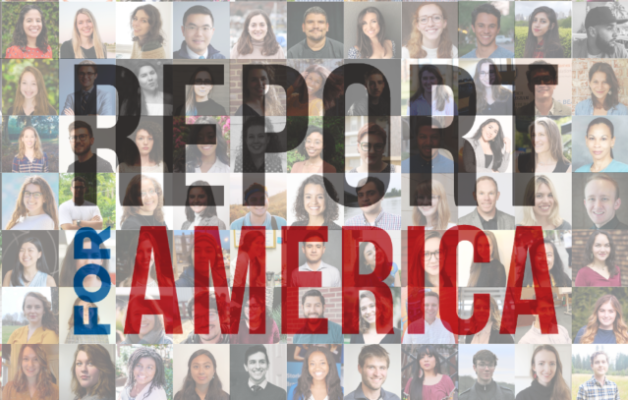
NJ PBS in Newark, New Jersey, the headquarters of NJ Spotlight News. Photo (cc) 2022 by Dan Kennedy.
It’s NewsMatch time — that annual holiday tradition when local and regional news nonprofits ramp up their fundraising efforts so that donations can be matched by the Institute for Nonprofit News.
This morning I received an email with the intriguing subject line “This was our favorite story of 2023!” from NJ Spotlight News, one of the projects that Ellen Clegg and I are profiling in our forthcoming book, “What Works in Local News.” The top of the email reads:
Dear Dan,
Last week we kicked off our year-end campaign, and we couldn’t be more excited to share how your support made a big impact in 2023, plus give a glimpse into the exciting plans we have for 2024.
As a reader of NJ Spotlight News, you know you can depend on our nonprofit journalism day in and day out. But do you know what goes into producing just one story, from start to finish? Take, for example, our story last week on youth voting, which investigated college age voters in New Jersey and their attitudes towards politics. Here’s a look, by the numbers, of what went into it:
-
- phone calls made: 6
- internal meetings at NJ Spotlight News to plan/discuss: 3
- days it took to produce: 10
- people involved in its production: 7
- cups of coffee consumed: 8
- emails sent about it: 31
- hours of transcription logged: 2 hours
We put everything we’ve got into all of our stories because we value in-depth, comprehensive reporting. These New Jersey stories need to be told and we believe sourcing our information from a variety of voices and perspectives is the best way to do so. And because of our hard work, we’re making a real difference in our New Jersey community.
The email did not link to the story, but here it is. Reported by Hannah Gross, Spotlight’s education and child welfare reporter, the story takes a deep dive into whether college students would vote in the following week’s state and local elections — a tough sell for younger voters given that there’s no presidential race on the ballot.
“People don’t realize how much change actually comes from the local standpoint,” Rowan University student Jamie Ivan told Gross. “Everyone thinks: ‘Oh, it’s not presidential, it doesn’t matter.’ Presidential elections matter a lot, but so do local ones. It affects your everyday life. It directly impacts you.”
Acting on a hunch, I checked to see if Gross is affiliated with Report for America, a project that places young journalists at local news organizations across the country. Indeed she is. Report for America is also featured in “What Works in Community News” — we interviewed RFA corps members at news projects such as The Colorado Sun and the New Haven Independent, and we also include a featured conversation with RFA co-founder Steven Waldman, edited down from our podcast interview with him.
NJ Spotlight News began life about a decade ago as a website covering statewide public policy and politics. Several years ago it merged with NJ PBS, and today comprises the original website plus a daily half-hour newscast, with a lot of cross-pollination between both sides of the enterprise. It’s an example of how public broadcasters can step up and help solve the local and regional news crisis — one of a number of business models that Ellen and I explored in our reporting on how to build a sustainable future for community journalism.







